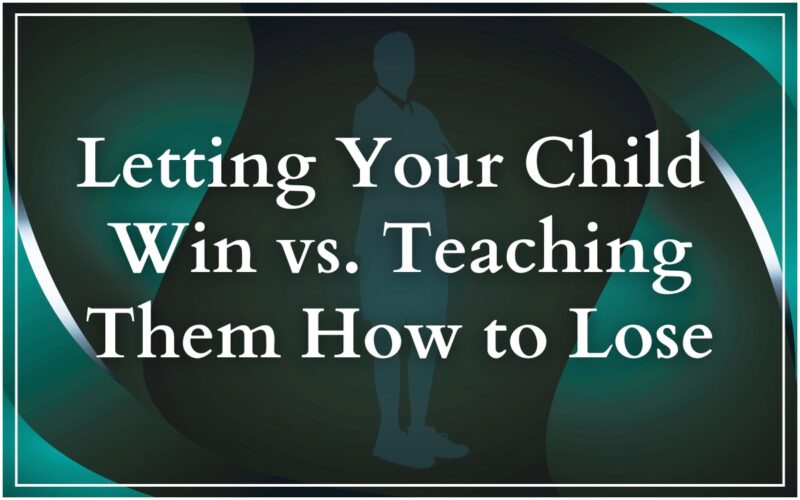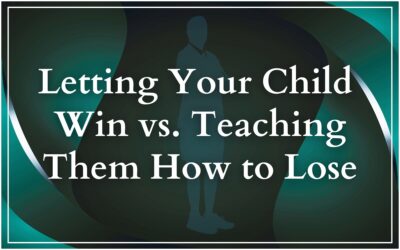As a dad, one of the joys of parenthood is playing games with your kids. Whether it’s a board game, a sport, or a simple game of tag, these moments are filled with laughter, learning, and connection. But every time you engage in these activities, you’re faced with a subtle yet significant decision: Should you let your child win, or should you teach them how to lose gracefully?
The Case for Letting Children Win
When you see your child’s face light up with joy after a victory, it’s hard not to want to give them that happiness over and over again. Letting your child win seems harmless, and in some cases, it’s even necessary, especially when they’re very young. They’re just beginning to understand the concepts of competition and fairness. Giving them a taste of victory can boost their confidence, motivate them to keep trying, and make the game more fun for both of you.
When my son was 4, I used to let him win at things like Mario Kart or Hi-Ho! Cherry-o all the time. The smile of triumph on his face when he accepted his win was priceless. I saw how much it meant to him, and it made our game time something he eagerly looked forward to. At that stage, the value of his joy outweighed the lesson of a hard-fought loss.
The Importance of Learning to Lose
But as kids grow, they need to learn that life isn’t always about winning. This is where the tricky part of parenting comes in. Losing is an inevitable part of life, and how we handle loss shapes our character. Teaching your child to lose gracefully is crucial for their development. It helps them build resilience, understand the importance of effort, and develop empathy for others who may be struggling.
I remember the first time I didn’t let my son win. He was almost six, and had actually started to get better at various games. When he realized he was losing, he became disappointed and a little bit pout-y. I didn’t like seeing him upset, but I knew it was an important moment. We talked about how everyone loses sometimes, even adults, and how the most important thing is to try your best and have fun. It was a tough lesson, but one that has served him well as he’s grown older. It has made him more motivated to win but less disappointed when he loses, taking our game time to a whole new level.
Finding the Balance
The key is balance. If your child never gets a taste of victory they are likely to lose interest in the game or challenge. You don’t want to crush their spirit by being overly competitive, but you also don’t want to create a false sense of reality where they believe they should always win. The goal is to build a healthy relationship with competition—one where they can enjoy the thrill of victory but also understand that losing is not the end of the world.
Whether you let them win, or they win on their own, celebrate the win with them and use it as an opportunity to reinforce the effort they put in. When they lose, support them and help them reflect on what they can learn so they are encouraged to try again.
The Bigger Picture
Ultimately, the lessons learned from winning and losing go beyond games. They apply to school, friendship, and most aspects of adult life. Helping your child with these experiences, equips them with the tools they need to handle challenges, setbacks, and successes with grace and humility.
As dads, it can also be an opportunity for us to learn patience and empathy. We often let our ego get in the way of the grace we could extend to our children over winning or losing. If we set aside our pride for a moment we can help see our kids to a point where competition is fun and rewarding for both. We are also setting an example of grace that they will recognize with others down the road.
So, the next time you play a game with your child, remember: it’s not just about the outcome, but about the lessons learned along the way. Whether they win or lose, the most important thing is that they feel loved, supported, and ready to take on whatever comes their way.









